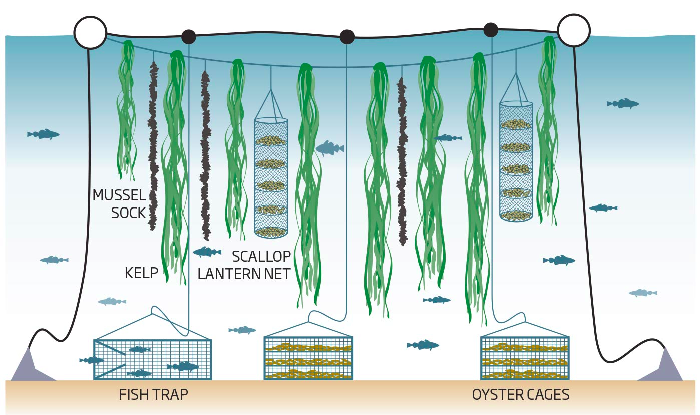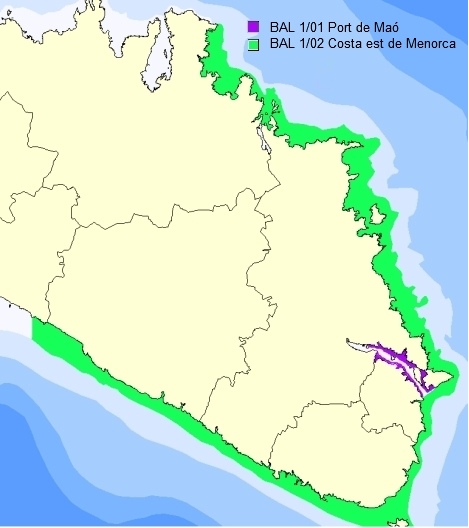Seminar on regenerative aquaculture: an opportunity for the sea
GOB Menorca is organizing a seminar with two presentations on regenerative aquaculture, set for Saturday, November 30, in Maó.
A new blue economy is taking root in some parts of the world, with positive economic and ecological results: regenerative aquaculture. This approach involves cultivating different species of shellfish and macroalgae together in a single space.
Regenerative aquaculture
With global warming bringing annual heat waves and the spread of new marine pathogens, diversifying crops helps businesses become more resilient by ensuring sustainable, continuous production. Additionally, the beneficial properties of algae are increasingly recognized, leading to a growing demand for this product in the restaurant, pharmaceutical, and cosmetics industries.
On the ecological side, shellfish feed by filtering water, performing a natural cleaning function that improves water quality. In building their shells, they also absorb large amounts of carbon, making them effective CO₂ sequesters.
Another benefit of cultivating diverse species in the same area is the creation of small ecosystems that foster the presence of other marine life. Studies in some areas have shown an increase in fish biomass, similar to what occurs in marine reserves.

Why Menorca?
Shellfish aquaculture was once prominent in the Port of Maó before the 1970s, but this activity was halted due to contamination from heavy metals released by nearby industry. After the pollution issue was addressed, limited shellfishing permits were reissued, though on a smaller scale.
Currently, only two approved areas exist for shellfish and invertebrate production in the Balearic Islands, and both are in Menorca: BAL 1/01 (Port of Maó) and BAL (on Menorca’s eastern coast). By promoting this type of farming, the GOB hopes to boost a commercial activity that, if well-managed, can improve water quality, sequester carbon, and create small ecosystems, ultimately increasing fish biomass that could spread beyond the farming areas.

The experts
Ignasi Gairín, the first speaker, is a technician at the Agricultural Research and Technology Institute of La Ràpita, the first Mediterranean center for restorative aquaculture. He will discuss this new blue economy as an opportunity and share various projects underway in the Ebro Delta.
The second speaker, Alejandro Simón, is a senior aquaculture technician experienced in designing and developing aquaculture facilities. He is the co-founder of Mediterranean Algae, an Alicante-based startup focused on enhancing quality of life through macroalgae use. He will explain how this type of business can be profitable by transforming raw materials into high-value ingredients.
The seminar fee (€15) covers attendance, a snack, and lunch. It will take place on the morning of Saturday, November 30, in Maó. Mark your calendars!
Interested participants can register through the following form or by visiting GOB Menorca’s office at Camí des Castell 53, Maó, Monday to Friday, from 9 a.m. to 2 p.m. For any questions, please contact administracio@gobmenorca.com or call 971350762.
The event is supported by the Marilles Foundation, Menorca Preservation, the Balearic Port Authority, the Insular Council, and the City Council of Maó.